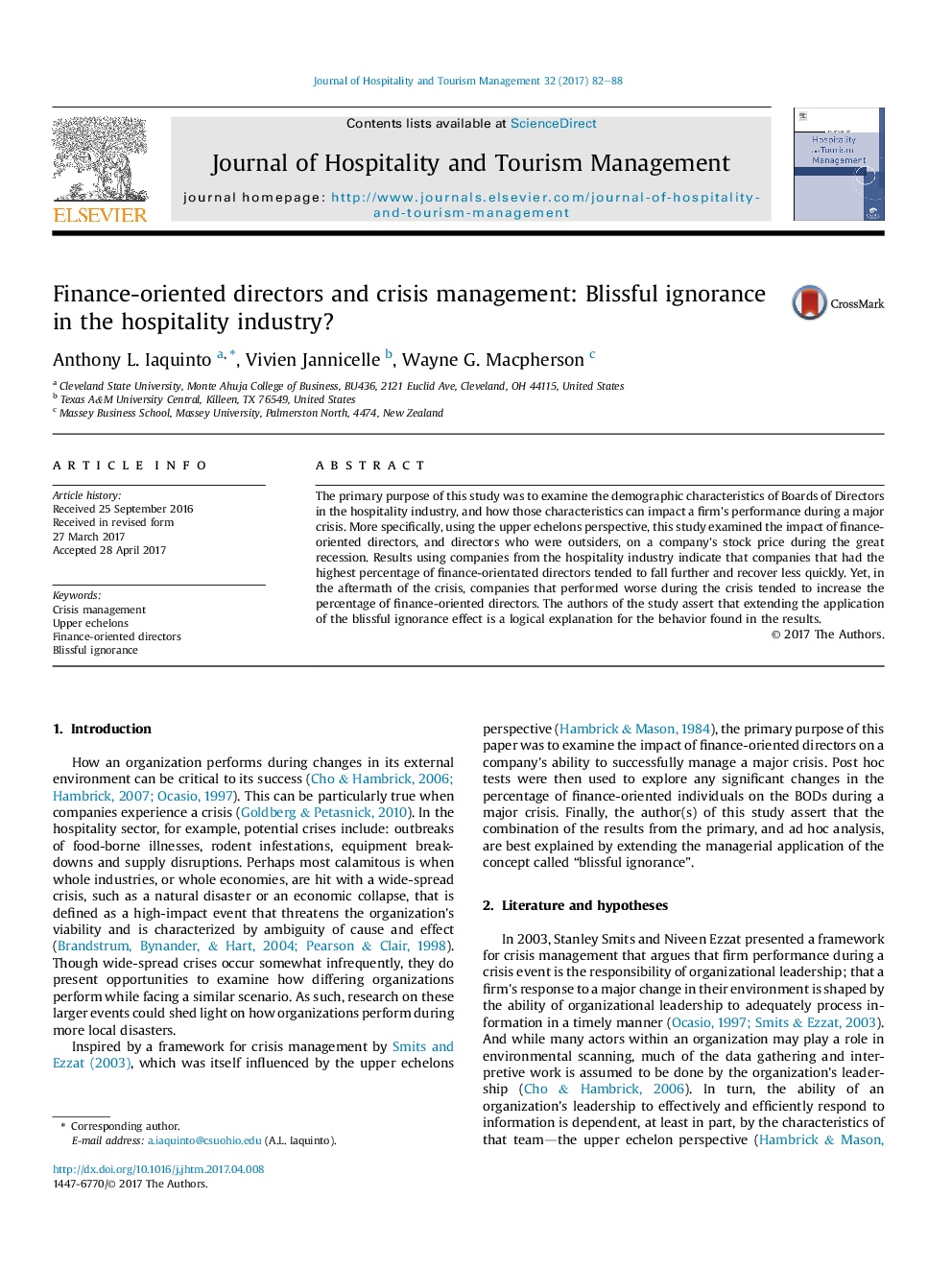ترجمه فارسی عنوان مقاله
مدیران مالی گرا و مدیریت بحران: جهل سلیقهای در صنعت مهمان نوازی؟
عنوان انگلیسی
Finance-oriented directors and crisis management: Blissful ignorance in the hospitality industry?
| کد مقاله | سال انتشار | تعداد صفحات مقاله انگلیسی |
|---|---|---|
| 83692 | 2017 | 7 صفحه PDF |
منبع

Publisher : Elsevier - Science Direct (الزویر - ساینس دایرکت)
Journal : Journal of Hospitality and Tourism Management, Volume 32, September 2017, Pages 82-88
ترجمه کلمات کلیدی
مدیریت بحران، بالاترین رده ها، مدیران مالی گرا، جهل وحشیانه،
کلمات کلیدی انگلیسی
Crisis management; Upper echelons; Finance-oriented directors; Blissful ignorance;
ترجمه چکیده
هدف اصلی این مطالعه بررسی ویژگی های جمعیت شناختی هیئت مدیره در صنعت مهمان نوازی و نحوه عملکرد این ویژگی ها بر عملکرد شرکت در طی یک بحران بزرگ می باشد. به طور خاص، با استفاده از دیدگاه های فوق العاده، این مطالعه تاثیر مدیران مالی و مدیران خارجی که بر قیمت سهام شرکت در طول رکود بزرگ بود، مورد بررسی قرار گرفت. نتایج با استفاده از شرکت های صنعت مهمان نوازی نشان می دهد که شرکت هایی که بیشترین درصد مدیران مالی را به خود اختصاص داده اند تمایل بیشتری به سقوط داشتند و سریعا بهبود می یابند. با این حال، پس از بحران، شرکت هایی که در طول بحران بدتر شدند، روند افزایش درصد مدیران مالی را افزایش دادند. نویسندگان این تحقیق معتقدند گسترش استفاده از اثر جهل سلیحانه یک توضیح منطقی برای رفتار موجود در نتایج است.

